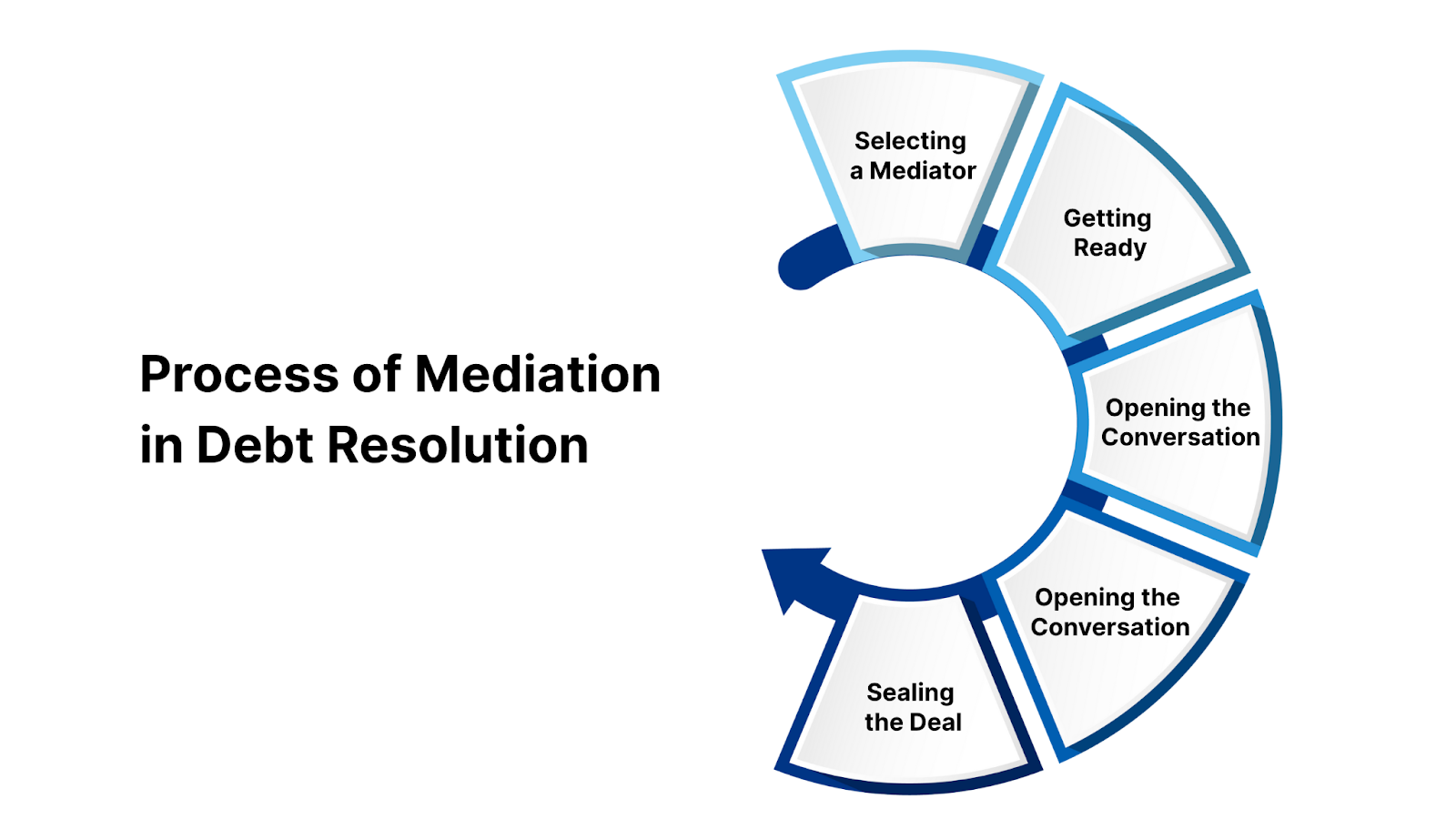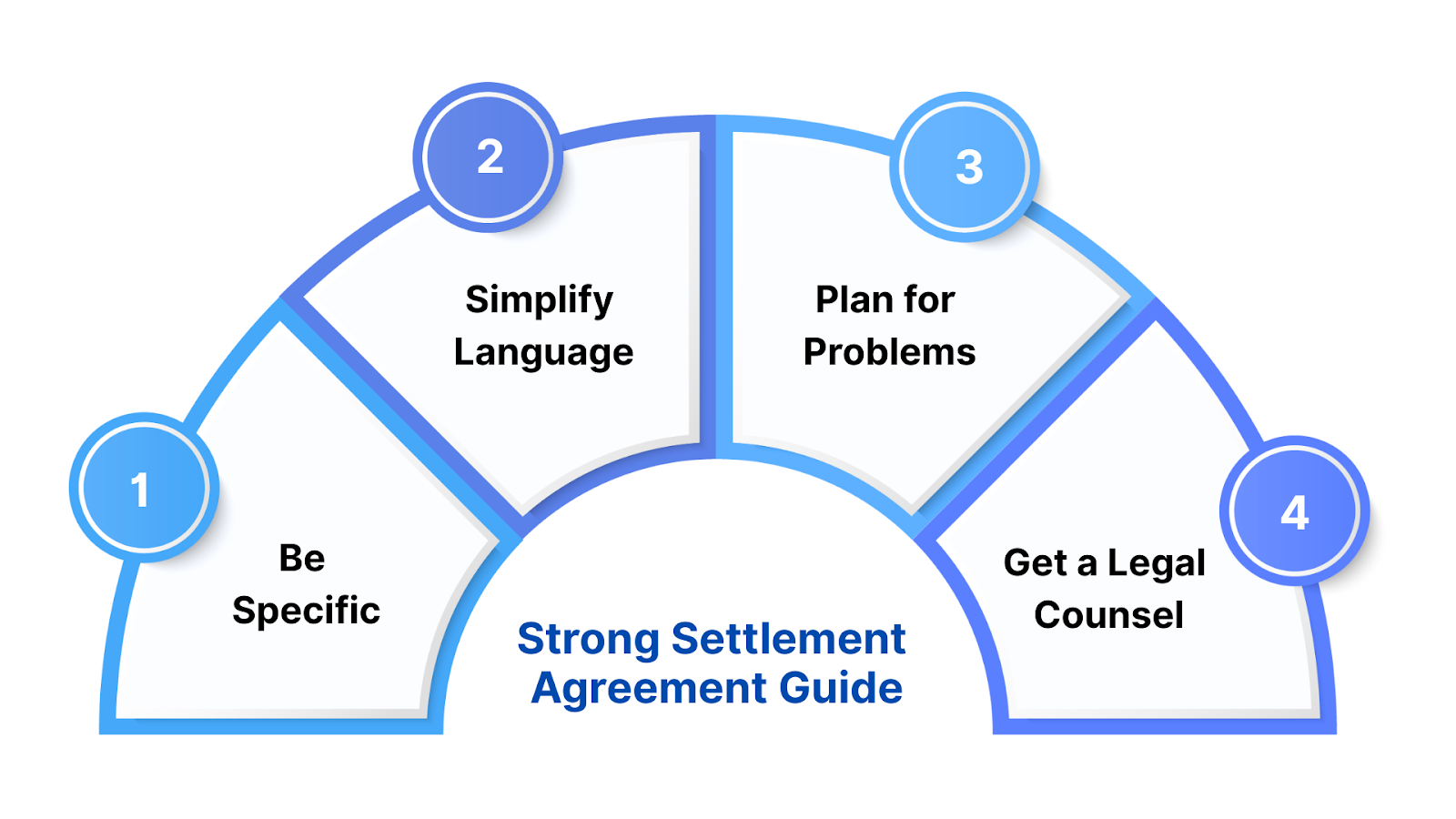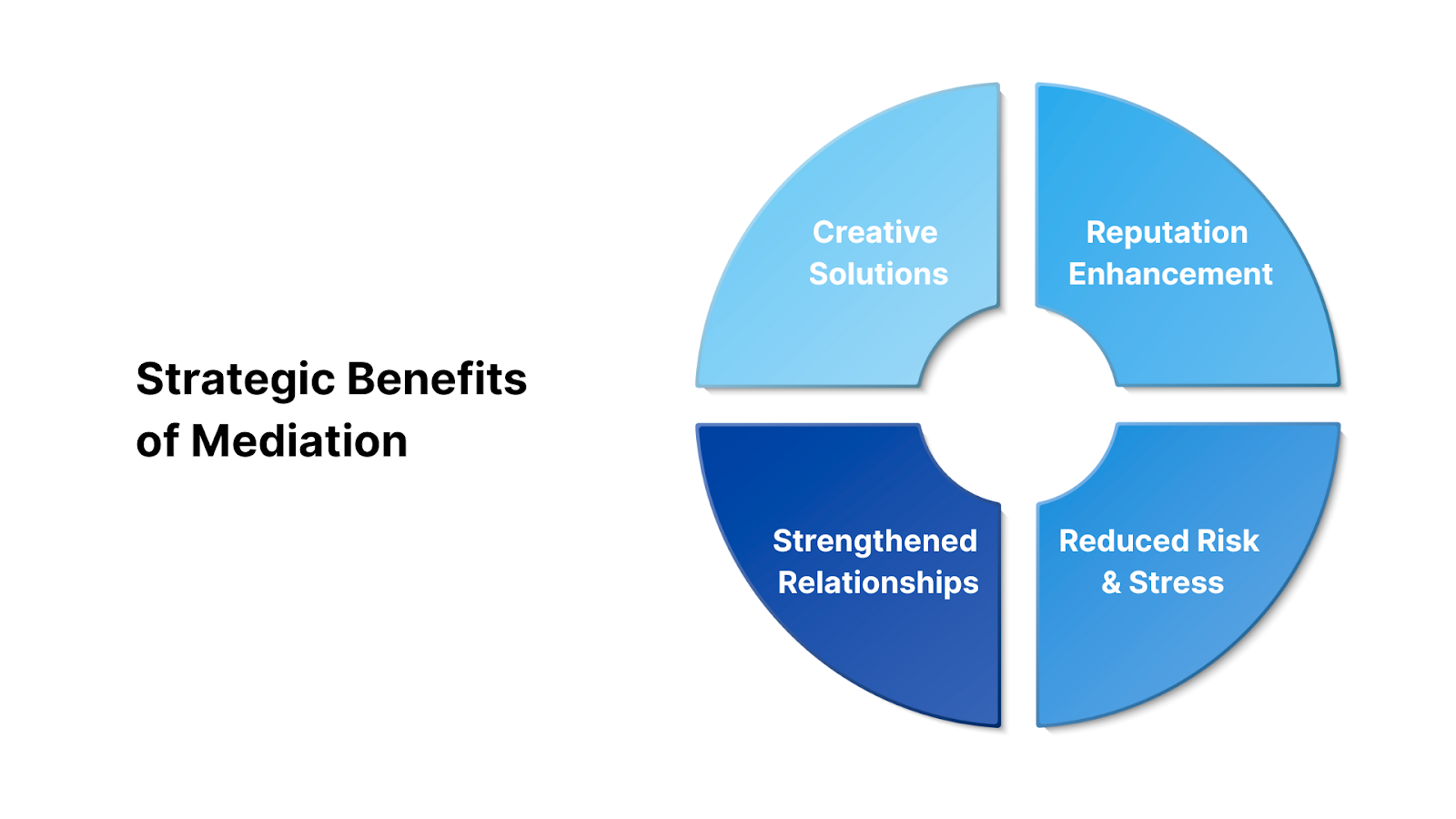Debt disputes can feel overwhelming, whether you’re a creditor chasing overdue payments or a debtor struggling to meet obligations. Legal battles often feel like the only path forward, but they come with steep costs, long delays, and strained relationships. Fortunately, there’s a more constructive and cost-effective alternative that keeps control in your hands: mediation.
Mediation provides a confidential, neutral setting where both parties can work together to resolve disputes on their own terms. Instead of a court-imposed judgment, mediation empowers you to negotiate solutions like repayment plans, debt reductions, or partial forgiveness. In this guide, you’ll uncover the essence of mediation, its critical value for creditors and debtors, the step-by-step process, its advantages over litigation, and much more. Let’s get started.
Mediation is a voluntary process where a neutral third party, known as a mediator, guides you and the other party toward a solution you both accept. Unlike litigation, which hands control to a judge, or arbitration, which involves a binding ruling, mediation keeps you in the driver’s seat. In the context of debt disputes, it creates a space to negotiate repayment terms, address misunderstandings, and find common ground without the stress of a courtroom.
If you're dealing with a debt dispute, whether you're trying to recover unpaid invoices or struggling to keep up with payments, mediation offers a calm and practical way to move forward. It's a guided process where a neutral third party, the mediator, helps both sides talk through the issues and find a solution that feels fair. There is no judge making decisions for you, and you’re not locked into rigid rules. Instead, you have the chance to shape the outcome together.
Mediation is especially effective in debt cases because of its flexibility and focus on collaboration. These situations often involve strong emotions and financial strain, which can make courtroom battles feel overwhelming and impersonal. Mediation allows for honest conversations in a private, low-stress setting. Maybe a debtor needs to suggest smaller monthly payments, or a creditor is open to accepting a reduced lump sum.
These kinds of personalized agreements are easier to reach when both sides feel heard and respected. Mediation helps make that possible. With this foundation in mind, let’s explore why both creditors and debtors stand to gain.
Also Read: How Credit Card Payment Processing Works: A Simple Guide
Mediation isn’t just a compromise; it’s a strategic advantage for creditors seeking repayment and debtors aiming for relief. By prioritizing collaboration over confrontation, it delivers practical benefits tailored to your needs, whether you’re recovering funds or managing liabilities.
As a creditor, your goal is to get paid without draining your resources. Mediation accelerates this by sidestepping the slow grind of lawsuits. Legal action might cost you thousands in fees and tie up your capital for months, but mediation can resolve disputes in days. For example, a small business owner chasing a $10,000 debt might spend more on court costs than the debt itself. Mediation cuts those expenses dramatically, often requiring only a mediator’s fee, and gets your money flowing again faster. Plus, it preserves business relationships, which could mean future dealings with the debtor.
If you’re a debtor, mediation offers breathing room. Instead of facing aggressive collection tactics or a lawsuit’s fallout, like wage garnishment or a trashed credit score, you can negotiate terms that fit your budget. Imagine proposing a $300 monthly payment instead of a $5,000 lump sum, giving you control over your finances without public humiliation. The process also eases emotional strain, replacing adversarial standoffs with constructive talks. Since both sides benefit, mediation builds a bridge to resolution.
Next, let’s break down how this process unfolds in practice.

Mediation follows a clear, customizable roadmap that turns disputes into deals. Whether you’re new to the process or refining your approach, understanding each phase helps you prepare and succeed.
This process bends to fit your situation. A retailer might accept goods returned instead of cash, or a debtor might offer a higher initial payment to lower interest. Each step builds toward a unique fix, unlike the rigid outcomes of the court. Now that you see how mediation flows, let’s weigh its edge over litigation.
Litigation might seem like the go-to for settling scores, but mediation outshines it with cost savings, speed, and control. Here’s why you’ll prefer it over a courtroom showdown.
These advantages make mediation a compelling choice. To ensure its benefits endure, you need a strong settlement agreement, which we’ll cover next.

A settlement agreement locks in your mediation wins, ensuring promises become actions. Crafting one that’s clear and binding takes a little know-how. Here’s what you need to nail it:
A sloppy agreement risks unraveling your efforts. Say you settle a $10,000 debt for $7,000, but forget to specify deadlines, suddenly, payments drag on indefinitely. A tight document keeps everyone accountable. Even the best agreements face tests, though, so let’s tackle common mediation challenges next.
Also Read: 8 Ways to Develop Good Financial Habits
Mediation’s collaborative nature doesn’t make it immune to hurdles. Power imbalances, emotional tensions, or factual disagreements can complicate talks, but with the right strategies, you can overcome these obstacles and keep the process on track.
With challenges addressed, let’s uncover mediation’s broader strategic value.

Mediation isn’t just about settling today’s dispute; it’s a strategic asset that enhances your financial and relational outcomes over time. Its flexibility and focus on collaboration deliver advantages that extend far beyond the immediate resolution. Here’s how it pays off strategically:
These strategic benefits make mediation a forward-thinking choice. Let’s wrap up with how you can put it into action.
Mediation transforms debt disputes from stressful standoffs into opportunities for fair, efficient resolutions. By understanding its process, benefits, and strategic advantages, you’re equipped to recover funds, manage liabilities, or preserve valuable relationships with confidence. Mediation's flexibility and cost-effectiveness make it a standout solution whether you’re a creditor seeking repayment or a debtor aiming for relief.
At Forest Hill Management, our expert mediators are ready to guide you toward outcomes that align with your goals. Contact us today to start resolving your debt disputes with clarity and ease; your financial future deserves it.
Q1. What is the role of mediation in resolving debt disputes?
Mediation offers a neutral space where creditors and debtors can negotiate debt resolutions without going to court. It encourages collaboration, leading to tailored and mutually beneficial outcomes.
Q2. How is mediation different from litigation or arbitration?
Litigation involves a judge’s ruling, and arbitration results in a binding decision by a third party. Mediation, on the other hand, is voluntary and non-binding until both parties agree on a solution—giving you more control.
Q3. Is a mediation agreement legally enforceable?
Yes. Once both parties sign the agreement, it becomes a binding legal contract that can be enforced in court if either party fails to comply.
Q4. Can mediation really help preserve relationships?
Absolutely. Mediation reduces tension by focusing on communication and mutual understanding, making it easier to maintain future business or personal relationships.
Q5. What kind of outcomes can be negotiated in debt mediation?
You can negotiate lump-sum reductions, structured payment plans, waived fees, or even non-monetary resolutions like service or product exchanges—whatever fits both parties' needs.